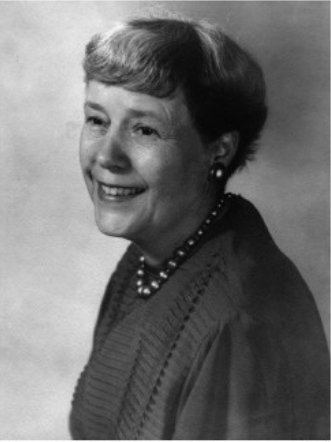

Queer Places:
Columbia University (Ivy League), 116th St and Broadway, New York, NY 10027
Mount Moriah Cemetery
Butte, Silver Bow County, Montana, USA
 Charlotte Towle (November 17, 1896 – October 1, 1966) was an American social worker, academic and
writer. She developed innovations in the field of psychiatric social work; she
wrote Social Case Records from Psychiatric Clinics (1941), Common Human
Needs (1945), and The Learner in Education for the Professions (1954).
Charlotte Towle (November 17, 1896 – October 1, 1966) was an American social worker, academic and
writer. She developed innovations in the field of psychiatric social work; she
wrote Social Case Records from Psychiatric Clinics (1941), Common Human
Needs (1945), and The Learner in Education for the Professions (1954).
Charlotte Towle, the second of four children of Herman Augustus Towle and Emily Kelsey (a schoolteacher), was born in 1896 and raised in Butte, Montana, where her father had a prosperous business as a jeweler. As a girl, Towle was exposed at home to discussions of political and social issues, including unemployment and labor-management problems—subjects that continued to interest her as an adult. After a year at a Virginia junior college, she began studies at Goucher College as an English major, but in her senior year enrolled in a program that enabled her to do field work with the Baltimore Prisoners' Aid Society and the American Red Cross. This experience convinced her to pursue a career in social work.
After graduating from Goucher in 1919, Towle was a caseworker for the Red Cross in Baltimore, Denver, and Thermopolis, Wyoming. In 1922, she took a position with the U.S. Veterans Bureau in San Francisco, and in 1924 worked at the bureau's neuropsychiatric hospital in Tacoma, Washington. Towle was dissatisfied with the traditional casework method of her profession, and wished to develop a more psychiatric approach to the field. She obtained a Commonwealth Fund fellowship in 1926 to attend the New York School of Social Work (later part of Columbia University) to study psychoanalytic theory and develop her skills as a psychiatric social worker. In 1927, Towle took a position as a director of the Children's Aid Society in Philadelphia, where she served until 1928. She also taught at the Pennsylvania School of Social Work, where she met Jessie Taft and Virginia P. Robinson , who were instrumental in developing the "functional school" of social work. Towle later accepted a position at the Institute for Child Guidance in New York City, where she supervised social-work students from the New York School and Smith College. From 1931 to 1932, Towle was a full-time field instructor for the New York School.
In 1932, Edith Abbott , dean of the University of Chicago's School of Social Service Administration (SSA), persuaded Towle to develop a psychiatric casework program there. Though Towle was considered a leader in the diagnostic or psychosocial school of social work and the SSA's approach followed the social welfare policy tradition, Towle was able to work productively at the university. She became assistant professor in 1932, was promoted to associate professor in 1935, and became a full professor in 1944. At SSA, Towle developed new courses and wrote several important journal articles, as well as her first book, Social Case Records from Psychiatric Clinics (1941). Sensitive to the impact of social and economic adversity on personality, Towle insisted that all social workers needed thorough training in psychiatric theory, and instituted a curriculum that replaced separate courses with one generic course covering family, child welfare, medical, and psychiatric issues. This innovation was soon implemented by other schools as well, and in 1954 Towle was invited to help develop a similar program at the London School of Economics.
In addition to her teaching, Towle served as a consultant to many agencies. When she was asked in 1944 to develop a manual for workers at the U.S. Social Security Board Bureau of Public Assistance, who were responsible for helping their clients obtain old-age assistance, aid to the blind, and aid to dependent children, Towle ran into trouble. The manual she wrote, Common Human Needs, published by the U.S. Government Printing Office in 1945, argued that individuals had the inalienable right to food, shelter, and health care, and that public assistance workers had a duty to help clients prove they were eligible for such aid. This argument was branded "socialist" by journalists and members of the American Medical Association, who pressured the government to destroy the booklet. The director of the Federal Security Administration ordered it to be discontinued, but after several counter-protests by social workers and others, the American Association of Social Workers began publishing the book itself. Common Human Needs was translated into several languages, and was still in print in the late 1970s. Towle also attracted the government's suspicion when she signed a petition urging clemency for Julius and Ethel Rosenberg , who had been sentenced to death for espionage.
Towle served on numerous committees and held significant advisory positions with the Veterans Administration (1946–48), the American Red Cross (1945–48), and the U.S. Public Health Service's Mental Health Division (1947–49 and 1953). She also served on the editorial board of the Social Service Review. She received several honorary degrees and in 1956 was honored with the Florina Lasker Award for distinguished service to the field of social work. She also received the Distinguished Service Award of the National Conference on Social Welfare in 1962.
Towle, who helped provide financial support for her parents and her other siblings, lived near the campus of the University of Chicago with her older sister and with social worker Mary Rall . She retired in 1962, but continued to do part-time teaching and also worked for the Scholarship and Guidance Association for two years. She died in 1966, after suffering a stroke while on vacation in North Conway, New Hampshire.
My published books: